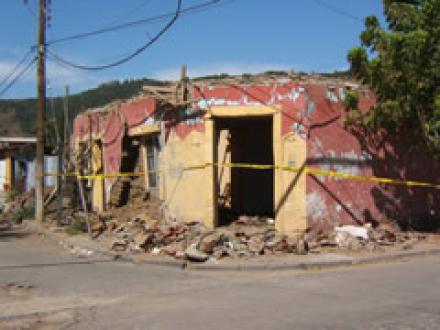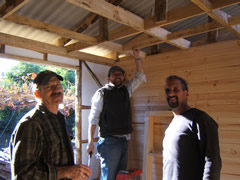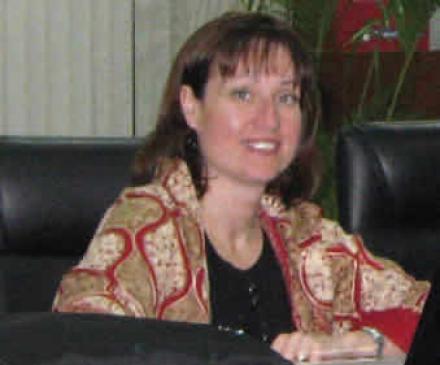On sabbatical
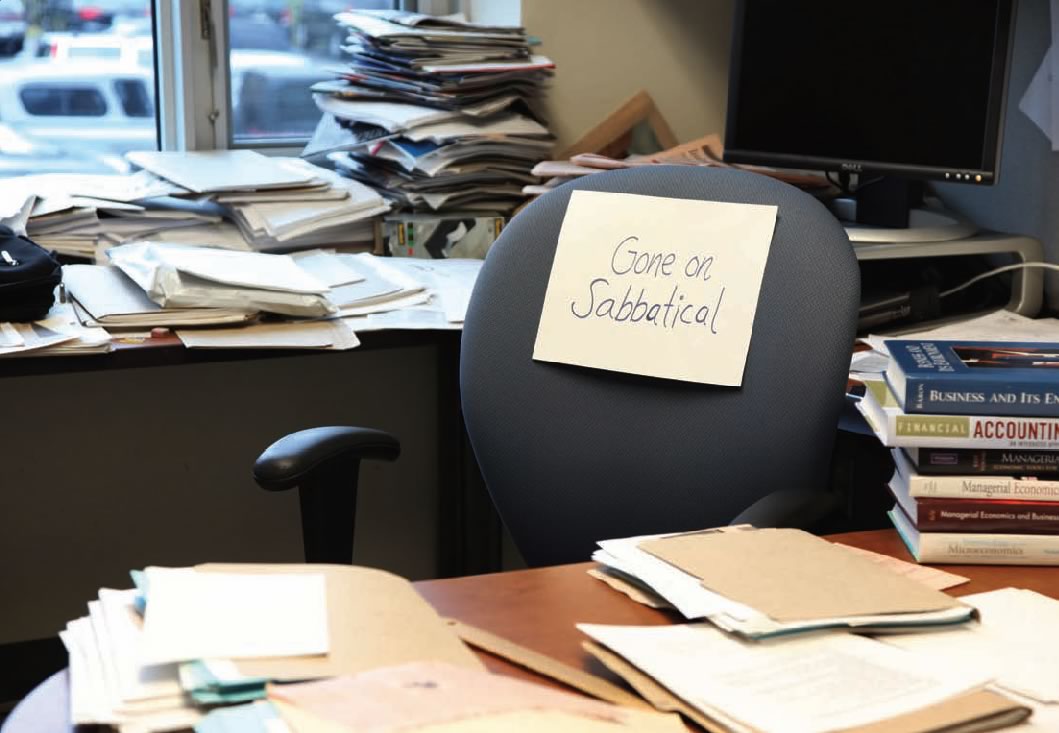
“Sabbaticals are typically fertile and productive periods,” says Associate Dean Brent Gallupe
The sabbatical is one of the lightning-rod features of academic life. To faculty, it offers a cherished opportunity for reflection, deep study and professional growth. To some outside academia, the sabbatical is perceived as little more than a paid vacation.
The term itself has biblical origins dating back to Mosaic law, when farmers left land fallow for one year after six consecutive harvests. In 1880, Harvard was the first university to grant sabbaticals to faculty. In 1937, Queen’s Principal R.C. Wallace firmly entrenched sabbaticals as an academic right rather than a privilege.
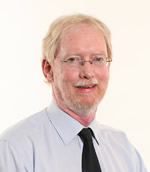 Brent Gallupe Today at Queen’s School of Business, faculty can apply for a sabbatical after every six years of university service (or three years in the case of six-month sabbaticals). Professors on leave receive 100 percent of their salary during their first sabbatical and 85 percent during subsequent leaves. Over the past 10 years, 24 QSB professors have taken full sabbaticals (20 of them as first-timers) and eight others have taken six-month sabbaticals.
Brent Gallupe Today at Queen’s School of Business, faculty can apply for a sabbatical after every six years of university service (or three years in the case of six-month sabbaticals). Professors on leave receive 100 percent of their salary during their first sabbatical and 85 percent during subsequent leaves. Over the past 10 years, 24 QSB professors have taken full sabbaticals (20 of them as first-timers) and eight others have taken six-month sabbaticals.
Contrary to the biblical meaning, academic sabbaticals are not periods when scholars leave their research fields fallow. In fact, sabbaticals are typically fertile and productive periods, says Brent Gallupe, Associate Dean, Faculty.
Each year Brent reviews applications for leave and receives post-sabbatical reports. The impact of sabbaticals is substantial, he says, both in deepening academic collaborations and helping internationalize the School. As proof, Brent can point to his own sabbatical in New Zealand and Australia in 1991-92, when he was a visiting professor at the University of Auckland. He established career-long collaborations and has since visited New Zealand twice a year to continue his visiting professor role.
Among those who spend all or part of their sabbaticals abroad, Brent says, most go to institutions in the U.S., France, China, Australia, and South America.
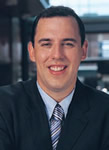 Clinton Free Clinton Free, an associate professor of accounting, opted to spend his sabbatical year at the University of New South Wales (UNSW) in Sydney, Australia, where, as a native Aussie, he spent his undergraduate years. Since returning to Australia in the fall, Clinton has been collaborating with colleagues at UNSW. “Working with a co-author in the flesh is always a big advantage,” he says. So too is the climate. “I woke up this morning (in November), had a swim at Coogee Beach, before running up to UNSW to present a paper with a co-author. It was about 27 degrees outside.”
Clinton Free Clinton Free, an associate professor of accounting, opted to spend his sabbatical year at the University of New South Wales (UNSW) in Sydney, Australia, where, as a native Aussie, he spent his undergraduate years. Since returning to Australia in the fall, Clinton has been collaborating with colleagues at UNSW. “Working with a co-author in the flesh is always a big advantage,” he says. So too is the climate. “I woke up this morning (in November), had a swim at Coogee Beach, before running up to UNSW to present a paper with a co-author. It was about 27 degrees outside.”
 Jean de Bettignies Jean de Bettignies is partway through his one year sabbatical as well. An associate professor of managerial economics, Jean is spending the first half in Kingston and the second in Madrid, Spain, at Carlos III University. The fall has already been busy, he says, with trips to Sacramento and Vancouver to consult with co-authors and conduct research. Only four months in, Jean has already submitted two papers for publication and written two more. At Carlos III, he plans to continue his research, make connections in Europe, and deliver seminars. “It’s a blank slate,” says Jean, “and it’s very exciting.”
Jean de Bettignies Jean de Bettignies is partway through his one year sabbatical as well. An associate professor of managerial economics, Jean is spending the first half in Kingston and the second in Madrid, Spain, at Carlos III University. The fall has already been busy, he says, with trips to Sacramento and Vancouver to consult with co-authors and conduct research. Only four months in, Jean has already submitted two papers for publication and written two more. At Carlos III, he plans to continue his research, make connections in Europe, and deliver seminars. “It’s a blank slate,” says Jean, “and it’s very exciting.”
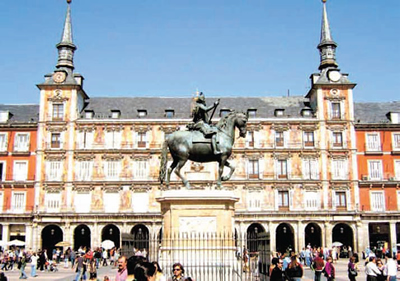 Carlos III University in Madrid Choosing Madrid was an easy decision. Jean’s wife is from Spain and his two young daughters speak Spanish fluently. “The hard part was planning everything else,” he says. “School, apartment, what to do with the house in Kingston . . .” Jean regularly disabuses friends of the notion that his sabbatical is a time-out from work. To do high quality research, he says, you have to go to the core of a problem. “It’s like peeling off the layers of an onion. But every time you’re interrupted, you have to start peeling from the beginning again. Having an uninterrupted period allows me to have those insights.
Carlos III University in Madrid Choosing Madrid was an easy decision. Jean’s wife is from Spain and his two young daughters speak Spanish fluently. “The hard part was planning everything else,” he says. “School, apartment, what to do with the house in Kingston . . .” Jean regularly disabuses friends of the notion that his sabbatical is a time-out from work. To do high quality research, he says, you have to go to the core of a problem. “It’s like peeling off the layers of an onion. But every time you’re interrupted, you have to start peeling from the beginning again. Having an uninterrupted period allows me to have those insights.
“I also explain that sabbaticals are beneficial to the university. The work people do while on sabbatical increases the university’s brand. It builds the profile of Queen’s as a top-notch place for research and teaching.”
"Working with a co-author in the flesh is always a big advantage,” says Clinton Free.
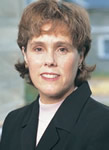 Susan Brodt Susan Brodt, Associate Professor of Organizational Behaviour, began planning for her sabbatical in Chile two years ahead of time. Academic colleagues were welcoming, so finding a visiting professorship post was not the biggest challenge; arranging for a visa and finding someone to look after the family’s Kingston house were the more time consuming and frustrating tasks.
Susan Brodt Susan Brodt, Associate Professor of Organizational Behaviour, began planning for her sabbatical in Chile two years ahead of time. Academic colleagues were welcoming, so finding a visiting professorship post was not the biggest challenge; arranging for a visa and finding someone to look after the family’s Kingston house were the more time consuming and frustrating tasks.
Going into her sabbatical year in 2009, Susan set ambitious goals for herself: to finish ongoing research on interpersonal trust in the workplace, and make headway on a large project on conflict and negotiation in multicultural groups with colleagues at Waterloo and Concordia universities. She also wanted to conduct the kind of research that can only be done when cultural moorings are removed. To immerse herself and her family somewhere distinct from Canada, Susan looked to the Universidad Adolfo Ibáñez (UAI) in Santiago, Chile, though she got more than she bargained for when a major earthquake hit (see sidebar at right.)
At UAI, Susan started two research projects with her new Chilean colleagues, sat on thesis committees, continued supervising grad students back in Kingston via Skype, taught MBA courses, and delivered, in Spanish, presentations on conflict, negotiations, and trust. In doing so, she developed fresh insights. “Trust is a universally popular topic,” says Susan. “Just like Canadians, Chileans crave the latest research. It’s sometimes difficult to communicate trust in Spanish, however, because the word, confianza, can mean many different things. Dealing with this sharpened my thinking as well as my language skills!”
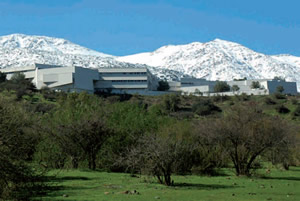 Universidad Adolfo Ibáñez (UAI) in Santiago, Chile In her teaching, she also gleaned subtle yet important distinctions. “Consider the value you take away in negotiations. In Chile, there is great value placed on building and maintaining relationships and establishing reputation. Students easily learn to create economic value while at the same time building social capital. In Canada, the value is defined in more personal terms, often focusing on economic gains. We evaluate agreements from the perspective of the individual and sometimes overlook opportunities to build other types of value.”
Universidad Adolfo Ibáñez (UAI) in Santiago, Chile In her teaching, she also gleaned subtle yet important distinctions. “Consider the value you take away in negotiations. In Chile, there is great value placed on building and maintaining relationships and establishing reputation. Students easily learn to create economic value while at the same time building social capital. In Canada, the value is defined in more personal terms, often focusing on economic gains. We evaluate agreements from the perspective of the individual and sometimes overlook opportunities to build other types of value.”
The year abroad was professionally and personally fruitful: Susan completed or advanced all the research projects on her plate and her family – her husband, a retired attorney, and 10-year-old son – relished the experience. Family highlights included travel to the Atacama Desert in the north, to Cape Horn and Patagonia in the south, and to Machu Picchu and the Amazon rainforest in Peru.
What Susan may remember most from her sabbatical are the lunches. The university’s somewhat inaccessible location meant dining in was the norm for faculty. “We’d have lunch together and talk about politics, our research, and, of course, La Roja, the Chilean soccer team,” says Susan. “It helped me get connected.”
The earthquake just served to cement the bond.
- 1 of 2
- ›


